News
Colonialism and Capitalism: From Earth to Space
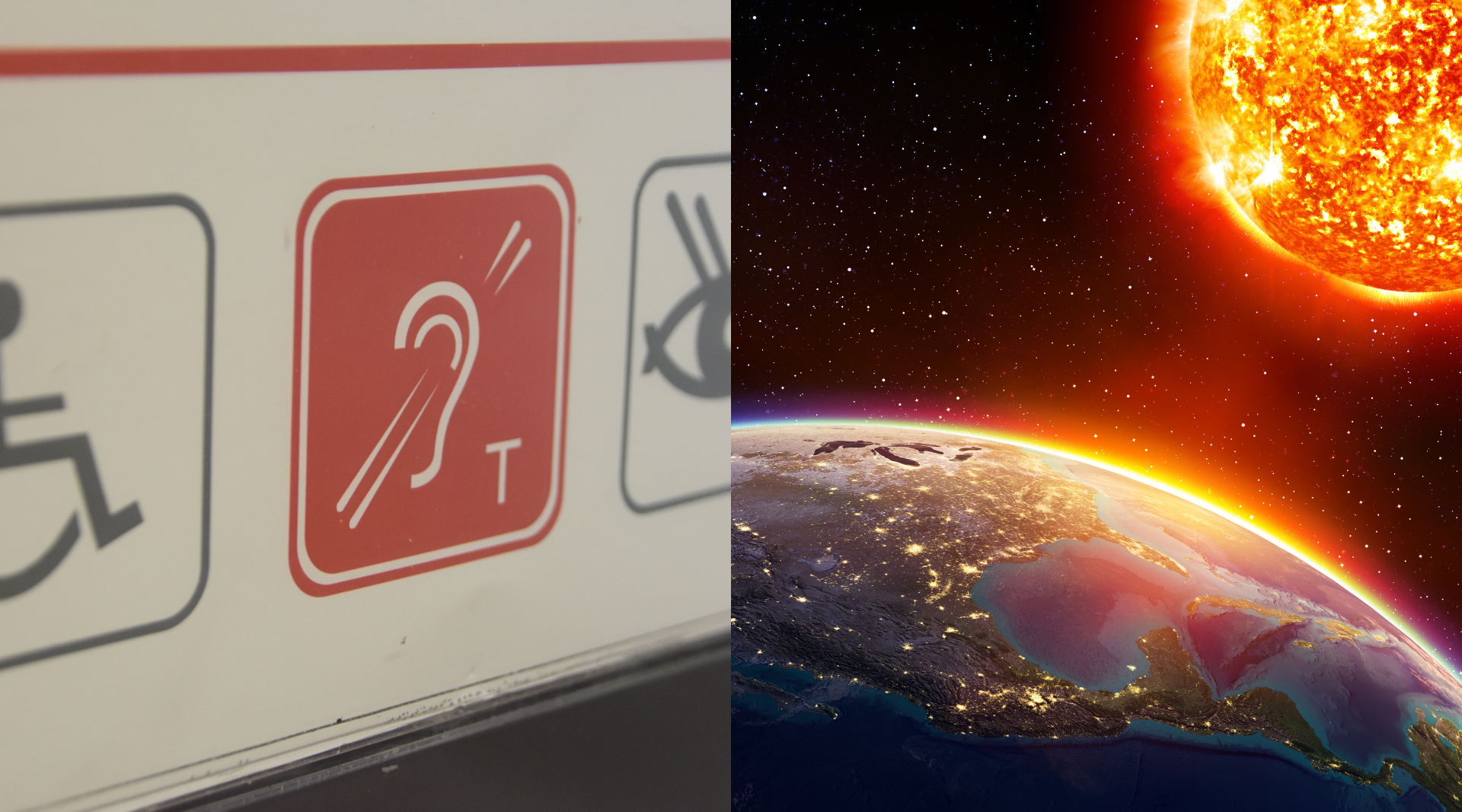
1.3K

/
This week, we’re talking colonialism and capitalism – on earth and in space. In the first half of the show, Eleanor Goldfield sits down with Jen Deerinwater and Ezra Star to discuss Disability Divest, a project that seeks to hold disability advocacy groups accountable – more specifically: how can you be an advocacy group for disabled people when you’re in league with those who create disabilities? Jen and Ezra discuss the connections between ills such as racism and xenophobia to ableism and how colonialism, imperialism, and capitalism create disability, and worsen existing disabilities. Next up, writer and researcher Zara Zimbardo joins us to discuss the concept album Marsification, how astro-colonial fantasies become reality as we turn our amazing earth more and more into mars. Zara outlines how we need to feel and reflect upon how our eco-anxiety is being hijacked, and how ideologies causing the destruction of our home planet, i.e. colonialism and capitalism, are the very same ones targeting what should be our global commons, the expanse of space.
Video of the Interview with Zara Zimbardo
Video of the Interview with Jen Deerinwater and Ezra Star
Below is a Rough Transcript of the Interview with Zara Zimbardo
If you enjoy our work, please consider supporting it at project-censored.org/support
Eleanor Goldfield: Thanks everyone for joining us at the Project Censored Radio Show. We’re very glad to welcome to the show Zara Zimbardo, who’s an Interdisciplinary Studies faculty at the California Institute of Integral Studies, Director of the Equity and Justice Consulting Organization Partners for Collaborative Change, a writer and researcher, and a long time bodyworker.
Marsification is her first album, co created with sound artist and therapist Lily Sloan. Zara, thanks so much for joining us.
Zara Zimbardo: Thank you so much for having me.
Eleanor Goldfield: Absolutely. So I really, I mean, the the album starts with suggesting that you find a quiet space and just kind of let the album flow over you and across you and through you and that is definitely some advice that I can pass on to others who might listen to this. This is not something you listen to while making breakfast.
And what I see as a core concept of this album is the goal or the action of turning Mars into Earth and turning Earth into Mars. And the idea that this lust for other worlds comes from a conscious or subconscious knowing that our own world is sick , and that we are the ones responsible for that illness. Likewise, knowing too that some of us have the privilege and the access to avoid entirely or mostly the pain and suffering already coming to us via human made climate chaos.
Could you talk a little bit about how you came to consider Mars and our relationship to it, both as galactic dream and nefarious plan, as a study not only of our systems of oppression, but also of our unique and beautiful ecosystems here on Earth?
Zara Zimbardo: Mm. Wow. What a question. Yes, absolutely. There’s so much to say there, but just to linger with what you said about turning, this drive to turn Mars into Earth, to terraform it, to make it potentially habitable for humans, has been the longtime province of science fiction.
And we’re at this remarkable time right now in the history of our planet where longtime sci fi dreams and fantasies are become science nonfiction.
And this is happening right at a time of these dreams and astro colonial fantasies seeming viable, desirable, and fundable because we are turning our amazing, miraculous, astounding, biodiverse Earth into Mars.
So the, this incredibly poignant, to say the least, time that we’re at, where there is this massive momentum coming from all kinds of places and people, including tech billionaires or billionauts, to make Mars habitable while the earth is being rendered increasingly uninhabitable.
And so this merits, you know, not just critical thinking as we’re seeing space colonization taking place in real time, but critical feeling. And this album is an offering of critical feeling, which is like, this is an extended meditation to really
be with and question and explore and feel into some of the nightmares that fuel astrocolonial dreams, right?
And for so long, a environmental, a slogan of the environmental movement has been, there’s no planet B, right? Which forces us to confront like, what is the system change that we can do here now? And so what does it do to say there is a planet B and there is this backup planet, right? What does that do to our imagination? What does that do to our momentum to make radical transformative changes that will ensure a just and or at least livable future?
And so we, you know, the title of the album is Marsification, which is also a neologism, which we’ll get into, right? And the subtitle is A Tale of Planetary Grief.
And so this is really an antidote to the ways that our collective eco anxiety is being hijacked and channeled by powerful interests into just like techno fix solutions, of which Mars is the most outlandish, expensive, and absurd, as an escape hatch from inescapable problems on our home planet.
We’re inviting feeling into grief at this time of ecocide, of omnicide on our home planet, which makes this dream of a civilizational reboot on another planet seemed like a good option for some.
Eleanor Goldfield: Yeah, absolutely. And you mentioned neologisms and I wanted to dig into that because as a word nerd myself, I find it fascinating how often it is that language shapes the way that we think rather than the other way around.
Zara Zimbardo: Absolutely.
Eleanor Goldfield: And that our language is often so devoid of so many situations and emotions, and there’s actually a book that talks about this, how various languages have words for things that we don’t have in English, and I think that’s really interesting. I have that feeling sometimes myself as a native Swedish speaker, and it’s something that I’ve heard from friends who speak Arabic or Mandarin or Spanish or what have you.
And so something that y’all do in Marsification that I really appreciate is that you incorporate and you highlight the concept of neologisms, literally just meaning new word, in talking about Marsification, which is in and of itself a neologism.
I was wondering if you could talk a little bit about Marsification as a neologism and how this word goes beyond the merely physical act of colonizing space.
Zara Zimbardo: Yeah, for sure. So this concept album, right, which is an audio artwork, is an art project within the art project, right? So throughout, like you said, there are different neologisms, most of which. are from a participatory public art project called the Bureau of Linguistical Reality, who are completely aligned with what you just said, that language shapes our worldview and lenses and how we think.
And they came about about a decade ago, convening salons of different people around the world to say, like, we need new language related to psycho emotional, spiritual, ecological states associated with climate change and environmental upheaval and destruction. And so people get together and they’re like, here’s a definition, here’s something we need to name, which is perhaps new, and we need to be able to talk about it, and then coming up with these terms.
And there’s a long history of this, right, like in the early 20th century where there was coal exhaust, you know, for the first time in the sky, and different emissions. And it was something in the sky that was not only smoke and not just fog. And so they needed to create the term, right, the portmanteau smog.
And so throughout the album, there’s five words that we bring forward. Terrorforming, which dovetails very neatly with marsification, which is the inexorable realization that not only are we incapable of fixing and fleeing to other planets, but we can’t even slow the death of our own.
Shadow Time, which invites us to feel into this kind of creeping haunted sense of two different time scales as we go about our goal oriented day to day lives, and then may feel that a species that has existed for millions of years is going extinct in our child’s lifetime or that something may happen that will just make all of this irrelevant or obsolete.
One term that is not from the Bureau of Linguistical Reality, but was created by Glenn Albrecht, an Australian environmental philosopher, is solastalgia. And this was created in the early 2000s, right? So similar to nostalgia, which is a sense of right longing or homesickness, and solastalgia is homesickness while you’re still at home, and your home is being irreversibly altered or damaged or transformed in ways that you may feel helpless to change. And so it was like, you know, it was happening in mining communities in Australia and other places. It was like, this is an emotion. This is a psychological state that needs to be named and needs to be engaged with.
And so that’s the spirit of having throughout, in a robotic Joanne, the fembot voice, different definitions. And Marsification I coined, with Patrick Rainsborough and with the Bureau some years ago. And so this term which is talking about techno utopian fantasy to transcend our ecological and dire physical realities on earth, or this expansion of colonial fantasy beyond the atmosphere and manifest destiny to the stars.
, was really meant to, you know, we wanted to introduce this term to both name, acknowledge, and also in some ways mock this idea of billionaut technofix solutions that are distracting us from the needs to work within ecological limits to drive system change here on earth. And that it is the same logic that drives ecocide on earth, of this rapacious, insatiable, extractive, exploitive, nature is ours to exploit ideology, which has caused so much damage and haunting for so long.
And so, the album, right, is a way to really, again, drop into feeling this moment that we’re at instead of just analyzing and talking about it.
This feels important to name right, we’re here in 2024. 2030 is being, for some time has been hyped up as this big decade where there will be boots on the grounds in Mars and the first humans, researchers on Mars and laying the grounds perhaps for some type of settlement or city, right.
And so this is very immediate and is really important to question: what is this doing to our imaginatiht. What is it opening up of all these like, Oh, exciting frontiers, you know, out to infinity, et cetera, and what is it shutting down in terms of us being able to imagine overcoming, right, or the work that we would need to do to confront past and present, and future on earth?
Eleanor Goldfield: Yeah. And I want to get to some of that that you just mentioned in a minute, but I also want to kind of circle back as you mentioned, manifest destiny. And of course, making this connection that that’s not just something that is in history books, as James Baldwin said, history is not past.
Marsification, like the idea that there would be no victims, right? But the colonizers that then created the United States said the same thing, right, either that the Indigenous would die and then that would free them of their savagery or they’d assimilate and the same outcome would be true.
So I’m curious, with that, what are we ruining by this quest, assuming that there aren’t actual Martians? What is that colonialist mindset that values, you know, exploration and expansion above all else, what is that manifest destiny putting at risk?
Zara Zimbardo: Hmm. Yeah. This is a huge question that is really important to keep asking and my co creator for this album, Lily Sloane and the seed for all of this was planted in 2019 when I was on her radio show called Radical Advice, and we were talking about the psychology of space colonization. And we really got animated by talking about this idea of manifest destiny, right? Which was this ideology of Western expansion and progress, right? It’s an elite ideology that this was divinely ordained and inevitable and was justification for genocide, for violent displacement and dispossession.
And so we really landed on this idea of manifest destiny as like an obsessive compulsive condition, right? That we have not grown down, grown out of, right? That keeps casting its spell. And, there’s many voices at this time saying like, we cannot colonize Mars until we learn some lessons here on Earth, right?
And the lessons are Many. And just to say, it’s not like we are painting everything with one brush saying like, Oh, exploration is somehow inherently bad. Not at all. But what this particular offering and intervention is, is being like, what are some of these inherited worldviews that we need to hospice, right?
Like wherever we go, right, we go away when we arrive at away, what are we going to find? We’re going to find ourselves with our baggage. And are bringing all of our stuff with us. And so what work needs to happen to compost and really reckon with some of this to clear some space for something new?
And so when you’re asking about some of these continuities, right, there’s one track on the album called Brought To You By, which is this very right kind of tongue in cheek space tourism Be a Pioneer ad, which is making very direct links with these continuities, of economically different institutions, different drivers, and that there’s a lot of arguments for the colonization of Mars that can be understood as reactions against any kind of historical accountability.
So even if there are no indigenous Martians, perhaps there are microbes. There’s so many questions to ask, right? For whom would this kind of multi planetary existence be formed, right? Who would do the labor? Would there be extraction of different resources from our home planet? Who would do
heavy and dangerous work? What would be the impacts of that extraction on Earth? What types of hierarchies would there be? What types of law and governance, right? And so again, there can be these fantasies by someone like, one of the most influential and visible Occupy Mars proponents, Elon Musk, right, but saying things like, oh, we’ll have direct democracy on Mars.
And so that’s an example of like, Marsifying our failing democracy by being like, Oh, we’ll just be able to reboot on an alien planet. And so, all of this is, very old, right? It’s like dazzling new technology, but very old patterns of colonizers believing that somehow they are going to be unburdened from the past and to be able to start life anew with this dream of empty lands and all of the dehumanizing justifications to portray land as empty.
And that’s very much alive and thick in the air right now, right? There are a lot of pretty uncritical, unselfconscious rhetoric and discourses coming from different places of wild west frontiers, of praising Christopher Columbus, of talking about new world exploration.
And this is now our next, you know, adventure awaits as we voyage across the cosmic ocean, et cetera. And so you have a lot of other decolonial thinkers and activists or people who are doing amazing work around more just space policy.
There’s all kinds of issues of ethics that we would do all this damage here, right? We as a very particular w e, right? Somehow discard or transcend our planet and these limits without having learned from any of these mistakes. And so there’s both this gigantic possibility that somehow we, that this could summon radical imagination to become something different, which is a longstanding trope of visionary fiction. And at the same time, you’re seeing these very dominant colonial mentalities continuing on, that continue forms of amnesia and erasure.
And so that danger comes back to earth. And just to say that in all of this, it makes us miss the opportunity to use our ecological limits. So that’s a very potent juxtaposition of thinking about how we just think about limits, and the ways that the supposed limitlessness of space is summoned is what will save us from ourselves or help us transcend ourselves.
Eleanor Goldfield: Yeah. I mean, there’s so many threads to pull on here. But I, first of all, I love the word billionaut and I had not heard that before, this idea of billionauts destroying so much, just like the colonizers destroyed so much. I think for me, one of the things that it feels that they’re destroying is this ancestral, this ancient connection to space.
There’s this wonderful meme that I’ve seen going around, which is, “You’re made of stardust, but so is trash, so don’t take yourself too seriously.”
And I love that because it’s, not only is it true, but it also comments on like, Hey, maybe we should make less trash. But
Zara Zimbardo: space trash as well, but
Eleanor Goldfield: yes, which I mean, soon we might not even be able to shoot up rockets because they might just hit the colossal amounts of space trash rushing around our planet.
Zara Zimbardo: A big hindrance for commercial space flights.
Eleanor Goldfield: Yeah. In the album, you talk about how our bodies are oceans and that we are home to millions of other organisms. “My body is made of other bodies, always in strange company.” And I love that, especially with this talk of the connection to space, I think there is a lot of this othering, like, oh my gosh, this is this other frontier, this is this other, but we have a very strong ancestral and ancient connection to space.
I was wondering if you could talk a little bit about that, a connection that’s both physical and mental and how that is also being destroyed or twisted and deformed by this talk of colonizing Mars.
Zara Zimbardo: Hmm. That is a beautiful question. And just to say, obviously we’re focusing on Mars, but there’s also this colonial supposed trillion dollar gold rush of asteroid mining in the asteroid belt, right? And just the fact that it’s talked about as that way just shows that we remain under that kind of spell.
I mean, there are so many different sky traditions in different cultures throughout space and time. And it’s so important, as you said, that there’s this diversity that can be present and lifted up instead of getting twisted and dominated by the vision with the most funding behind it.
Aparna Venkatesan, who works in space policy, and is a cosmologist, writes and talks beautifully about space as ancestral global commons. And can we talk not about colonies, but about communities, right? That it’s not saying, oh, don’t go. But how do we go? What questions do we ask?
What principles are guiding this connection? And to acknowledge that we are in space, we are in outer space, we are made of stardust. I saw an image the other day which showed our spiral galaxy and just a little like you are here living in fear and paying taxes. Right.
And so we’ve often looked to the skies to get this expansive sense of, and wonder
to feel our smallness, right? With humility in the face of this. And something that fascinates me and us are the ways that going to space, people who have actually done that, or going there just in our imaginations or VR headset or whatever, that the perspective of the earth, right? How transformative that can be.
There’s this phenomenon called the overview effect which has happened for a number of astronauts, right? Different for each person. But with all of this drive to get off of the planet and to make it out there, and then not expecting the impact that it would have, to turn around and look out the window and look back home and to see the earth from the perspective of space which can bring up all kinds of transcendent feelings, as well as tremendous sorrow, concern seeing this fragile blue miracle that we’re on. A sense of different kinds of solidarity.
William Shatner, Captain Kirk experienced this on blue origin with Jeff Bezos, with this highly televised trip into space and where he had remarkable comments afterwards saying my trip to space was supposed to feel like a celebration. Instead, it felt like a funeral and was the strongest feelings of grief I’ve ever encountered. To have that perspective and to feel the loneliness of space and to just be in awe of all of the life forms on earth that have taken millions of years to evolve, and, you know, we are on this ecocidal collision course with the life support systems of the planet, right? And just crossing our ecological tipping points and thresholds.
And so, in terms of perspectives from space, I’m really curious how we can have the overview effect without actually leaving the planet. And that can help us to dissolve another part of the colonial mindset, which is of separation, and domination.
There’s this Tekhmet Han, this is a Zen Buddhist monk, would often lead walking meditations, having people close their eyes and imagine that they were on the moon, where there’s no birds, no grass, no clouds, and that you’re looking at the earth, you’re looking at the earth rise and just feeling yourself full, fill up with longing to be able to take peaceful steps on our blue green planet.
So he’s like leading you through this and then you open your eyes and you’re like, Oh gosh, I can’t believe we’re here. And so he’s sharing this, the Zen miracle of walking on earth, but the true miracle isn’t walking on air or water, but it’s actually walking on earth and knowing that you are.
And so space, and imagining being out there or being on sibling planet of Mars, how can that be an ally to help us keep landing on earth in different ways, and to wake up in a not dissimilar way that near death experiences, right? It’s very well cataloged that people are then awash with wonder and gratitude for life, to do all of the brave and bold things that they didn’t do, to let people know that they love and appreciate them, to live life more creatively, et cetera.
And you don’t need to have, you can meditate on death. You don’t need to have a near death experience, and you don’t need to have a near planet experience to keep coming home in wonder. And the piece that you, the track that you described, my body is of earth is meant to have us really feel that we are not on this planet. We’re of this planet. We’re not, Oh, we’re walking around here. We could be walking around somewhere else. Like we are this planet walking around on itself. And to not just cognitively, no, but to actually feel what we’re made of, everything that we’re made of is like this gravitational field, this atmosphere, these elements, on this water planet.
Eleanor Goldfield: Yeah, absolutely. That’s beautifully put.
So in wrapping up here, I wanted to ask you about nostalgia and longing, because this is something that’s also covered. I mean, there’s solastalgia, of course, a different kind, but, just the promise of space that we grew up, or that I grew up hearing, which I can contrast very well with in Sweden, no one talked about going to space.
They were like, that’s not what we do, but in the US it was very much like, this is something that we’re going to do. And you could be, you could go to space. And it, how it also speaks of earth as being tapped out, as a place that’s already explored by these people that were t’aught to admire, whether that be Columbus or Cortez or, you know, American presidents.
And so the quest for space is seen as a way to kind of save America, you know, pay attention to the night sky where we’ll shoot you up to this barren wasteland that’ll somehow flourish and make sense, like trickle down economics, in spite of all evidence to the contrary. Don’t pay attention to what’s happening here.
And now, don’t ground yourself in this space and time that you exist, but rather in that good old promise of outer space as a haven, this literal and figurative escape.
And I was wondering if you could talk a little bit, wrapping up here, about what Mars and Marsification says about our psyche, specifically with regards to this kind of deep longing and nostalgia to a promise that we’ve never actually lived as we live through so much oppression and climate chaos?
Zara Zimbardo: Your questions are phenomenal.
Eleanor Goldfield: Oh, well, thank you. Your album is phenomenal, so.
Zara Zimbardo: Just appreciating, yeah, how each of them could be, go into much longer conversations. Yeah, and so nostalgia is powerful to acknowledge how it has been wielded and who wields it and what are the effects on us.
Again, at this time that is pretty desperate and is giving rise to desperate fantasies, our terrestrial ecosystem is making it very clear that business as usual, right in the colonial capitalist way of doing things has pushed us to the brink of extinction. And we can debate the massive feat of terraforming, of bending Mars to become habitable for humans and perhaps other lifeforms, right?
However, The dominant system only has a proven track record of unintentionally making this planet inhospitable to humans, and more than human species. And so part of this offering is just to help us keep breaking the spell when we’re hearing it cause especially with that anxiety and being like, okay, yeah, save us. Yes. Do the geoengineering, you know, what will it be?
But these deep longings are so important not to bypass, and technofix solutions, both hijack them, capitalize on them, and they also bypass them where it’s like, what is going on with that longing? And how can we get curious about this longing to save ourselves and what that would take, right?
And what is it about the red planet that would make it possible there if it’s not possible here? And within this are these promises that come in popular discourse that while life support, like keeping us alive on Mars would be outrageously technologically difficult, that it would be on some, in some other ways, a simpler time and a simpler love and a simpler relationship.
And it’s like, Oh, leave this old relationship with earth that has so much baggage and is so difficult, it’s going nowhere, for this new exciting relationship full of possibility, with the God of war right over here, et cetera. You know, there was maybe water billions of years ago. And, just to say that this is a trope that has existed for quite a few decades of transcendence, that we would be able to transcend our bodies and upload our consciousness, perhaps transcend mortality, transcend this planet, transcend ways that we can’t imagine any other way out of. And then that would be possible in this radical new land.
And so again, it’s like let’s go in visionary fiction. Let’s put, go in VR headsets. You know, there’s the Mars Desert Research Station in Utah, maybe they could expand their scope of just having people go there working on ethical issues and practicing radically different ways of being that we could hope could sprout on this different surface.
But to suppose that some of our deepest issues that have haunted the human family so long could be solved or overcome anywhere other than earth is an escapist fantasy.
And just as you said, it can function as a massive distraction at a time when we need to be channeling extraordinary powers of collaboration and imagination around ecological paths forward that are just and that are livable.
And there’s a fabulous book that just came out called A City on Mars, written by a wife and husband research team, who are brilliant and hilarious,
Kelly and Zach Wintersmith and the subtitle is can we settle space? Should we settle space? And have we really thought this through? And I bring it up because it’s making a big buzz right now where, they are space geeks with deep ties with space settlement community and thought they were going to do this massive research and write this book that was like, all right, we’re figuring stuff out. Let’s do this. And the whole book is like, Whoa, let’s put on the brakes, right? They’re looking at space sex and space reproduction, dying on Mars, governance and law, all kinds of issues, like incredible unknowns about, medical unknowns, and they’re ending with saying, you know, this certainly can’t happen at the pace of venture capital.
It has to happen at some very different pace, if at all. But saying that going to the stars will not make us wise. We need to become wise if we want to go to the stars. And so that speaks to some of these issues of longing and nostalgia of what conditions do we need to create to work with that in the practice fields here on our planet, and not assume that this astoundingly resource intensive way of going all the way to Mars is going to magically liberate us.
Eleanor Goldfield: Yeah, absolutely. I love that. We need to be wise first.
Zara, thank you so much for, well, not just for sitting down with us, but for creating, for co creating this album. It is beautiful and powerful and necessary.
Where is the best way for folks to interact with it?
Zara Zimbardo: Yeah, I would invite everyone to come to our website, marsification.com, and there we’ll have links to where it’s streaming, on different platforms, and then it also gives some different contacts, there’s a whole bunch of resources to get into if folks are interested,
as well as links to the different neologisms that are used, but that’s the best way. And it has the delightful feature of navigating, moving around a planet while you’re interacting with the website.
Eleanor Goldfield: Yeah. It’s a fun website. So thank you again, Zara, so much for taking the time to sit down with us and to co create this album.
Zara Zimbardo: A huge pleasure.
Below is a Rough Transcript of the Interview with Jen Deerinwater and Ezra Star
If you enjoy the show, please consider supporting our work at Project-Censored.org/Support
Eleanor Goldfield: Thanks everyone for joining us at the Project Censored radio show. We’re very glad right now to welcome to the show, Jen Deerinwater and Ezra Star, well, welcome back Jen Deerinwater and welcome Ezra Star.
Jen Deerinwater is a bisexual, two spirit, multiply disabled citizen of the Cherokee Nation of Oklahoma and an award winning journalist and organizer who covers the myriad of issues Jen’s communities face with an intersectional lens. Jen is the founding executive director of Crushing Colonialism, which you can find at crushingcolonialism.org.
Ezra Star is a multiply disabled trans Jewish drag king based in D.C., performing as the drag king Neurocosmos. They are also the producer and host of Disabled Delight, D.C. ‘s first openly all disabled drag show, passionate about centering disabled art as essential to disability justice movements.
Jen and Ezra, thanks so much for joining us.
Ezra Star: Of course, thank you so much for having me.
Jen Deerinwater: Yeah, I’m happy to be back.
Eleanor Goldfield: Absolutely. So I wanted to start, we’re recording this on August 2nd for folks who are wondering where we are in space and time. And July 26th marked the 34th anniversary of the Americans with Disabilities Act.
And I wanted to get into the legacy of that a little bit later. But first I want to start with a project that both of you are a part of, that’s disability Divest, which folks can find out more about at disabilitydivest.org. The primary message being: we demand the disability establishment end its relationship with war profiteers.
So starting off y’all, can you talk a little bit about what the disability establishment is and what relationships it has with war profiteers?
Ezra Star: So I used to work in disability rights orgs for some time. So I was one of the few people in disability divest who was formerly or currently affiliated.
A lot of them are led by disabled people, but a lot of what we mean by disability establishment is that they are disability rights organizations, a lot of them located in the D.C. area that are very focused on a rights understanding of disability, of trying to make the system change from the inside, and trying to reform the system and work with people who are embedded, in groups who are embedded in that system to make change, while Disability Divest is taking a lot of influence from the disability justice movement that was created by Black and Indigenous disabled queer artists in the mid 2000s who were saying the entire system is warped.
We have to build a new system and challenge the one that currently exists. So a lot of these disability rights orgs like AAPD, Disability:IN, operate from the standpoint of, in order to change things for disabled people, we need to work with corporations and like weapons manufacturers for example to get them to be more inclusive of disabled people instead of being like hey, the fact that we’re partnering with weapons manufacturers is awful in the first place.
Eleanor Goldfield: Did you want to add anything, Jen?
Jen Deerinwater: Yeah, I think I could add just a little bit about the details of how there is this tie in between the war systems and these orgs. And so part of the issue is that, really you can see this across the nonprofit industrial complex, corporations and horrible entities end up having to sponsor a lot of nonprofit organizations for survival. But then these nonprofit orgs like Disability:IN and AAPD, they just, as Ezra was saying, they start buying into these ideas of how we’re supposed to operate.
And so examples of how the military industrial complex is tied to the disability rights establishment is through things like awards and sponsorships. Disability:IN does a list every year of some of the best places for disabled people to work and they give awards. Well, weapons manufacturers like Lockheed Martin are on that list.
And then there’s AAPD, which Ezra and I were two people out of a small group of disability divest folks who disrupted AAPD’s reception last week celebrating the Americans with Disabilities Act. They, for example, were sponsored by a litany of really problematic corporations you could hold accountable for multiple reasons, but specifically around Palestinian genocide, like Starbucks, Northrop Grumman, Wells Fargo. I can’t even remember who all there were, but there were several really problematic sponsors that were there and Wells Fargo was there speaking.
So this is kind of how disability divest came to be and what we’re referring to when we talk about the disability rights establishment and how they’re in league with Palestinian genocide and war and, you know, a whole host of really awful issues.
Eleanor Goldfield: And just before we move on, I want to talk specifically about what’s going on in Gaza, but I wanted to ask just real quick, what was the response when y’all disrupted?
Ezra Star: Yeah, so I sort of think for a little bit of context, AAPD has been around since the late 1990s. So they’ve had programs such as their summer internship program, and their Hearn awards where they award disabled people to help like fund their projects. Those have been around for a little over 20 years.
So this is a very established org that’s had partnerships with Google, for example, for a long time with Google, like being on the board, and Google’s part of tech for apartheid. And so AAPD is considered in a lot of ways to be the disabled led disability rights org, the main one in DC, the main one with most power.
And so a lot of people are afraid to challenge that organization. And they’ve never been disrupted before. And I, I noticed that, for full disclosure, I did used to intern there. So parts of my knowledge, parts of my understanding of their corporate relationship came from seeing them inside as well as observing them outside.
So when we did this there was a lot of support in the audience who are happy there that we’re doing it. And there also is a lot of people like very taken aback. There are yelling at us to get off the stage, to mind your own business.
There were folks who support Israel that tried to instigate with us, they tried to talk over Jen when Jen was reading the disability divest demands, and hotel security called the police and 30 MPD folks showed up to potentially arrest a small group of people, and the organization had to get the cops to leave, and that was largely because one of the attendees of a different org, who’s a exec director of a different org, said, get the cops to leave.
But basically there has been a really significant positive response online because people are saying, wow, disability divest is challenging Wells Fargo and AAPD in this way.
This is a really, this is a really powerful thing to see.
Eleanor Goldfield: Did you want to add anything, Jen?
Jen Deerinwater: Yeah, so normally when I am at any sort of disruptions or direct actions and such, I’m usually there as press. I don’t often take part as the disruptor or the organizer, activist, whatever you want to call them. I do every once in a while, this is one of those occasions where I felt really compelled to take part. But I’ll be honest, I didn’t really know what to expect. I’ve never done any organizing against any disability organizations before.
I have taken part in protests and things against Wells Fargo. I know that they’re not afraid to sic security on people and such, but this was just a very different scenario than I’d been in before. And when I am doing non violent direct action, I really try to just stay focused in whatever that role is, whether I’m there as press, I am reading the demands, whatever it is, I try to stay in that zone the best I can and just trust that the rest of the group will do their roles, whether that’s cop liaison, care bear, there to talk, you know, take care of us, et cetera.
I did hear from the crowd, mind your business. I did hear that a few times and I just chose to keep on moving and ignore it. Even though I wanted to be like, okay, we’re on Piscataway land right now, and I’m not Piscataway. I’m a citizen of the Cherokee nation of Oklahoma, but I think I have way more rights to be here speaking than you do. So you sit down and mind your business was what I wanted to say, but I didn’t.
You know, it was interesting though, watching it.
I didn’t really think that there would probably be a lot of cops. And then someone came up behind me and said, Hey, Jen, the police are here. And I looked up and there was a swarm of MPD. And I was like, my God, where did they come from? They just descended all of a sudden. I’m assuming this man was hotel security, but someone got up on the stage while I was reading our demands and they kind of lunged at me to take away my list of demands.
And I use a disability scooter a lot of times now. And so I was just in my scooter and I just kind of like maneuvered around him and then I saw someone run up towards the stage and like, no, leave her alone! And then some people jumped in front of me and between me and I guess the hotel security. It was interesting.
But then, there were the ASL interpreters who kept going, even though AAPD told them not to. And there was one person that looked like they may have just been there as an attendee who got up and was doing ASL, so even though there were some in the crowd who were clearly against us, it did still seem like there was some levels of support.
You know, when we left, I did see some people suddenly wearing keffiyehs and such, like it was interesting.
Eleanor Goldfield: That is interesting. Quite, quite a mixed bag. I’m glad that you could scoot away from the security guard. We use the tools we have at our fingertips.
So specifically with regards to what’s going on, the ongoing genocide in Gaza, I just wanted to share with listeners some numbers, even though the numbers are really hard or impossible to quantify. Earlier this year, the International Committee of the Red Cross reported to the NGO Humanity and Inclusion that 70 to 80 percent of the people coming into the barely functioning and remaining hospitals in Gaza have had limbs amputated or have had spinal cord injuries.
There’s no way to currently count the numbers of newly disabled children and adults, but already back in January of this year, UNICEF estimated that 10 children a day in Gaza were losing a limb due to Israel’s genocide. And of course these numbers do not include all disabilities, both ones created by genocide and all others that are a part of life just made worse by it.
So, I was wondering if you all could talk a little bit about this. This is a less reported issue, the issue of disability in Gaza and how this connects to the other terrors mentioned on your website namely things happening in Congo and Sudan.
Ezra Star: Yeah, I think Jen is like the most qualified to answer this one, so I’ll just be brief. I think a lot of the understanding in disability justice space and I think it’s best encapsulated by an article by Leah Piepzna Samarasinha called Palestine is Disabled.
And, so the idea of people who were born with disability are further disabled by this genocide, and genocide is creating disability, and colonialism intentionally is creating disability in the countries they colonize and that is the dynamic that it’s important, essential for more disabled people to be naming and centering
when talking about Palestine, Congo, Sudan and Tigray.
Jen Deerinwater: Yeah, we talk a bit in disability divest about colonialism and imperialism and while yes, a lot of the focus is on Gaza right now, it is also it is Sudan. It is Congo. It’s Turtle Island. You know, there’s so many different types of genocide that are happening around the world, and they all tie into colonialism and capitalism and all of these different ways and colonialism and capitalism, imperialism create disabilities, and they worsen existing disabilities. At this point, I feel pretty safe and saying there isn’t a single Palestinian in Gaza who does not have a disability of some kind at this point.
You know, you can look at colonized peoples around the world and see high rates of disabilities. Here in the so called US American Indians and Alaskan natives have the highest rates per capita of disabilities of any other ethnic or racial group. You can see that in so called Australia, where there’s actually a group similar to Disability Divest there called Crips Contra Colonialism, that’s doing similar work there to what we’re doing here, holding disability establishments responsible.
You know, I, as somebody who runs a nonprofit, I understand how hard it is to get money. I understand, I really do, you know, but I don’t know how you can have this organization that’s supposed to serve disabled people, while you were in league with politicians and corporations and entities and individuals and such who are creating disabilities and worsening disabilities and killing disabled people and institutionalizing them.
You know, how could you be okay with that? And so for me, it’s just all of these issues are interconnected. What’s being done to one will be done to another and so on. There is no liberation for one without liberation for all and I have a lot of different identities. I’m queer, native, disabled, all of this, but I feel like with the disability community, we are the most, even on a global level, the most diverse of all oppressed communities, because anyone can become a member of the disability community at any point in their lifetime.
So unfortunately we do have some conservative and right wing and fascist folks and whatnot in our communities, but they’re not really a part of community. They’re not there for disabled people. They’re not there for disabled justice. They’re for their own,
they’re there for their own grab at power.
Eleanor Goldfield: Yeah. And I want to dig a little deeper into that connection, because I think that some people might feel like, Oh, well, you know, solidarity is just a good thing to have with people across the globe, but it’s far more visceral than that.
I would argue that it’s impossible to dehumanize disabled people in Gaza or in Sudan or in Congo unless you already have a working paradigm of doing so at home.
So, this paradigm of dehumanizing disabled people starts here and then is militarily or economically or what have you exported to these other places and of course Israel being a U.S. colony is part of that.
So I was wondering if you could talk a little bit more about that overarching paradigm of the dehumanization of disabled people?
Ezra Star: Yeah, thank you so much for asking that question.
I say it’s the dehumanization of the entire population, and a lot of the Zionist entity uses in languag,e discussion they ascribe Palestinians with animalistic language, with anti Arab language and all that language is also directed at black, indigenous, Latina, and Asian people here.
So it really shows to me the, how inseparable ableism and racism are from each other. And that the liberation of disabled people requires the liberation of all people of color, both disabled and,
not.
Jen, very much rooted the actions, connections to home because we knew, Jen knew that Wells Fargo had given a millions of dollar loan to Elbit systems, which is an israeli weapons manufacturer. And so Jen was the one to come to us and with the knowledge , cause Jen’s been protesting Wells Fargo for years, that Wells Fargo was one of the biggest funders of the Dakota Access Pipeline and ICE detention centers and private prisons.
So it was really important to us, even though most of disability divest work has been on Palestine right now, that with this protest, we root those connections in how Wells Fargo is perpetuating harm domestically, in order for disabled people to see how those things are interconnected with each other.
It was I was kind of laughable to me because when we stormed the stage, there was an automated announcer saying we at the AAPD welcome all opinions and views on many topical matters, yet at the same time while saying that and trying, and panicking, well, I should have mentioned it earlier.
So, the contractor they hired to do the virtual live stream of the event decided to cut the live stream audio captions in ASL for the entire time we protested. AAPD says they were not aware until after that this happened, but it’s that dynamic of like having an automated voice telling you please stop, please stop speaking, while also we’re going to cut your audio because we don’t want people to know that we’re all capable of challenging an establishment.
Jen Deerinwater: We even, because we had somebody screen record AAPD’s live stream, we actually have them on recording. You can hear somebody in the background saying, cut the audio, cut the ASL. Like you can hear someone saying that.
Yeah. So, but the dehumanization part,
the dehumanization of disabled people, it’s, that’s such a big question that you asked that I’m like, Oh man, my brain is just spiraling out and I’m not quite sure where to focus in, but you know, I feel like you can’t just dehumanize disabled people if you’re not also dehumanizing other groups of people, because if you’re willing to disable certain groups and you’ve already dehumanized them, you know. There’s very limited statistics out there, but on the research that has been done, it’s found that about half of all people who are killed by the police in the so called US have a disability.
Vast majorities of incarcerated people have some form of disability. There’s just, there’s so many ties. You know, the police forces in the so called US, they go to Israel and they train with Israel. There’s ties between cop city in Atlanta and Israel, you know, like to me, I just, you can’t say you care about disabled people while you’re supporting these other projects.
You know, disabled people are disproportionately houseless in this country. Thanks to this recent Supreme Court case, now houseless people can be incarcerated. We already had houseless people being put in mental institutions in New York City under Mayor Adams.
You know, just the levels of degradation and dehumanization continue on reproductive justice issues. It’s legal on a federal level to sterilize disabled people against our will. Well, if you cared about disabled people, then maybe you would have cared about codifying Roe. V Wade into law, you know, to me, it’s just like, if we didn’t degrade disabled people, then all of these other issues wouldn’t be where they are.
But I also want to add, Amani Barbarin is this amazing black disabled content creator, speaker. A video that she did, I don’t even know when, but she talked about how if they, meaning the powers that be, want you disabled, they will make you disabled. And she specifically talked about the runaway slave syndrome and the idea that when enslaved African people ran away, they were considered mentally ill for running away.
And that instantly to me made me think about the, Oh, gosh, I’m blanking on the name, but it was a quote, insane asylum for native people in South Dakota. And part of the reason they would lock up natives there is saying like, oh, you don’t want to give us your land, you must be mentally ill.
So, you know, the degradation of disabled people is really degradation of all people. You know, if we actually cared about humanity, if we actually saw the humanity in everyone, then we wouldn’t degrade disabled people either.
Eleanor Goldfield: Yeah. Thank you so much for all of that context. And while you were speaking, I’m also reminded of the long history of putting women into insane asylums because they, you know, refused to marry some guy or they refused to get raped by their husband or because they were well aware and adamant that they should have certain rights.
So those connections are very, very clear. And, I think it’s important to do what y’all have done and connect all those so that people see that this isn’t about whether you’re disabled or whether you’re not, but about these connections that we all have and that we exist on an oppression spectrum. I think that’s really important.
And finally, because we are very close to that 34th anniversary, it was just a few days ago, I’m curious how y’all feel about the Americans with Disabilities Act.
What do you feel that it accomplished, and how do you feel about the present day moving into tomorrow, particularly when we have these kind of organizations that y’all just protested at the helm?
Ezra Star: Yeah, that was very much actually at the heart of why Disability Divest formed because one of my co founders came to me and said, Disability Pride Month is coming up in July, and the 34th anniversary is coming up. I’m really struggling, they said to me, I’m really struggling with how to engage with this while multiple genocides are happening and the disability establishment is silent and being actively complicit in
these ways, when the disability quality index rating Lockheed Martin as 100 best places to work for disabled people and 10 other weapons manufacturers, and feeling the need to do something.
And similar to how queer and trans nonprofits have engaged in pink washing, why don’t we look into this? To what extent this dynamic shows up in disability rights organizations. When we found the patterns that we’re seeing, we’re both like on a conscious level as a human being, we have to dive in, we have to dive into this, we have to engage and direct our attention towards bringing attention to this, to doing education and action around this.
I think in terms of the ADA, specifically that the event we protested was a celebration of the 34th anniversary of the ADA and marking it with having Wells Fargo one of your presenting sponsors, speaking. It was just deeply, really , messed up.
I’m someone who grew up after the ADA was passed, and I think as I worked more, interned more in disability rights spaces that are more focused on reforming the system rather than challenging the system, I saw more the lateral ableism and queerphobia, I experience in those spaces, and the racism and xenophobia I observed internally in those spaces, largely because those disability rights establishment were so focused on a single issue rather than expanding out to really include all disabled people impacted by multiple systems of oppression.
The ADA was created under a Republican government. It was created, in the era of bipartisanship. So the way it’s structured entirely plays into that reform law. It was designed politically to meet Democrats demands and Republicans demands. Disabled people were working with both sides of the aisle in order to make that happen.
We’re now in an era where Republicans and a lot of disabled community are in very completely different places. Bipartisanship is not central to disability advocacy anymore, really. It’s not something that works at this time, and so the ADA, like, multiple establishments are required to be wheelchair accessible, but religious churches, synagogues aren’t required to.
It’s engaging with those compromises, so, it’s like, I both benefited from it as a disabled person born after it. And I saw the multiple systems of oppressions that continue, that were still embedded within the creation of the law, and still continue after it.
Jen Deerinwater: Yeah, the ADA, I’d rather it exist than not exist, but it’s more often than not, I don’t think a very particularly helpful piece of legislation for the average disabled person.
I mean, first of all, it was really only made to benefit wheelchair users. There are all kinds of disabilities out there that require a wide variety of disability needs.
You know, I was born before the ADA. I definitely remember what it was like in school. I was not considered disabled as a child. But I definitely remember seeing the disabled kids at my school being sequestered off in their classroom and on their bus.
I have so many frustrating experiences with the ADA because there’s also no enforcement body for it.
The only way a disabled person can maybe have the ADA apply to their life more often than not is to file a lawsuit. You know, the CVS that’s brand new, only two years old down the street from me, their door opening button never works. That’s a pharmacy. The amount of medical institutions and facilities I go to that are not disability accessible is astounding.
I have a HUD complaint right now against the D.C. housing authority for breaking the ADA and violating it in numerous occasions. You know, so even with its existence, it’s still not doing that much for disabled people, in my opinion. There was even a case that thankfully the Supreme Court dismissed it as moot, but, the Atkinson Hotels versus Laufer case, where there was actually an attempt to strip away the power of disabled people to file lawsuits against businesses that did not provide disability services under the ADA. So it’s just this legislation where I’m like, eh, it kind of exists in name only. And even in name, it’s not that great. I mean, the way I get treated even in federal government buildings is absurd.
I was invited several years back to an event at the US Capitol. And I came in with my cane and the security guard was instantly like, do you need that ? And I looked at him, I was like, yes. You can’t put it through the conveyor belt?
And at that point, I was just like, I’m not going to do that. I’m not going to do that. You can wand me. And I said, well, I’m disabled and need this. And I’m here as a guest for a disability event, no less. They just seem so perturbed to have to wand me as opposed to me just throwing my cane on the conveyor belt and walking through the security apparatus thing. And that’s the government.
Eleanor Goldfield: It sounds like a lot of things that the government does, eh, like you fell backwards into something that was kind of good, but not really. Yeah, absolutely.
And also, it’s just so, like, why would you bring a cane if you didn’t need it? Like, what am I going to do? Putting on the Ritz? Like, I’m not here to do that, that’s so bizarre.
Jen Deerinwater: Exactly! Exactly! Like, do you think that disabled people are treated so well that able bodied people are out here imitating us and buying and putting money into mobility equipment to pretend to be disabled?
Are you kidding me? Of course I need the damn cane!
Eleanor Goldfield: Ah, that’s so bizarre.
Well anyway, Jen and Ezra, thank you so much for taking the time to sit down with us. If folks want to learn more about Disability Divest, including reading the demands that Jen, in case you weren’t there to hear them when Jen read them out, you can visit disabilitydivest.org.
Are there any other sites or places that you’d like people to know about before we sign off?
Ezra Star: Yeah, we do have our own Instagram and that is @disabilitydivest and where you can see all of our posts and in our bio, we have a linktree that includes a demand letter where you can sign on to the demands letter as an individual.
And where a group can reach out to us to say if they want to endorse as a group. And I think most importantly, we also include in our linktree links to fundraisers for disabled people, and Palestinian families with disabled members who are raising money to evacuate Gaza, and we want to encourage people to donate to those.
We also include a link to Crips for E Sims for Gaza, which is an initiative started by Leah Piepzna Samarasinha and Alice Wan to donate E Sims to Palestinians in Gaza.
And we also have Twitter that’s disabilitdivest because for some reason we couldn’t do disability divest on X. So we have Twitter and TikTok as well. I would say our Instagram @disabilitydivest and our website disabilitydivest.org is our main places to go.
We have an actions tab that includes both our letter to AAPD and our letter to Disability:IN, and our letter is available, has an ASL version and a plain language version for people with developmental disabilities.
All right. Well, thank y’all so much for taking the time to sit down with us. Really appreciate you being here.
Jen Deerinwater: Thank you for having us here.
Ezra Star: Of course. Thank you for having me and Jen on the show.
Business
Is Starbucks app down for US customers trying to access Holiday Menu 2024?- The Week

Several Starbucks customers in the United States complained that they were unable to place orders through its mobile app on Thursday — the first day of the coffee chain’s holiday menu. However, Starbucks later claimed that the issue was resolved.
From ordering beverages to buying reusable cups and merchandise, multiple services offered by the Starbucks app were unavailable, US citizens claimed on social media. They were asked to place their order at a Starbucks store, US media reports quoted people as claiming. “We’re sorry for the inconvenience,” the message displayed by the app was headlined. “Mobile ordering is currently unavailable. Please visit one of our stores and place your order with a barista,” it further said.
Confirming the glitch, Starbucks Care’s official handle replied to a customer stating, “we are currently experiencing a temporary outage of the order ahead and pay feature in our app. We continue to welcome and serve customers in our drive-thrus and stores.” However, the coffee chain hasn’t elaborated on the cause, nature and scale of the issue.
The response was given to a user called Chritine D, who asked, “is the app down? first day of Christmas at Bucks and my app with ALL my stars won’t work?”
According to a Business Insider news report, a platform tracking website outages found several users reporting problems with the Starbucks app around 8 a.m. local time. It coincided with the time most Americans tried to order their morning coffee. The media house, in an online article, mentioned that its staff in Washington, DC, and New York City offices tried to place orders using the app but failed.
As a part of the ‘Starbucks Holiday Menu 2024’, the company is offering Cran-Merry Orange Lemonade Refreshe, Cran-Merry Orange Refresher, Peppermint Mocha, Iced Gingerbread Oatmilk Chai and Turkey Sage Danish among other items. CLICK HERE TO ACCESS FULL MENU
Business
The world of legal ‘cannabis’ and how it is getting popular in India- The Week

Welcome to the world of Cannabidiol or CBD, derived from plants like Cannabis Sativa and Cannabis Indica that we better know by names ranging from marijuana and hemp, or simply, by its variant, ganja.
But CBD refers to the medicinal products derived from the plant. Administered as oils, tinctures or even as a neat capsule, CBD is a bonafide medicine whose popularity has been on the upswing in India in recent times — so much so that that there are over 20 CBD-focused medicine manufacturers in the country, with top players like Bombay Hemp Company, Awshad and Indian Hemp Organics (IHO).
“With more people seeking natural remedies for conditions like pain, anxiety, and insomnia, demand for safe, effective CBD products is rising,” said Richa, co-founder of Awshad.
Richa ventured into cannabis-based medicines and pain relievers after witnessing the agony and struggle of her beloved pet dog Champ, as he went through a slow, agonising death due to cancer.
“Witnessing his pain inspired me to explore plant-based wellness, leading me to co-found Awshad with Shivam in 2021,” Richa said.
CBD is used for pain, anxiety, insomnia and inflammation, coming in various forms, ranging from full-spectrum of the tetrahydrocannabinol (the main psychotropic part of the cannabis plant), broad spectrum and isolate forms, the levels strictly regulated for medical formulations.
Of course, let’s put any mistaken notion of morality and civics to rest, right away. Cannabis and its various forms of psychoactive substances have been culturally and an intrinsic part of Indian history and social life for centuries, ranging from the mythologies down to lifestyles and festive observations. They were regulated only in the mid-1980s in the country with the draconian Narcotic Drugs and Psychotropic Substances (Prevention) Act 1985, commonly known as NDPS. The act came mainly after major pressure from the Reagan-era USA, which was then struggling under an influx of cocaine and other chemical drugs easily smuggled in from Latin America.
More worryingly, such trade was also increasingly seen to be financing terrorism and the mafia in many parts of the world. While nations of the world cracked down, a natural Indian healer ended up as the big casualty.
However, the CBD formulation we are talking about is completely legal, a Schedule E-1 drug that is regulated by the Ministry of AYUSH as well as state excise departments. The products are officially allowed on prescriptions and for therapeutic use only, with the cannabis sourced from government-approved farms in Madhya Pradesh, Uttarakhand and Uttar Pradesh, which are strictly regulated and monitored.
“The scope of medical cannabis in India is growing immensely as awareness of its therapeutic benefits expands with our efforts and other companies on educating customers,” added Richa.
In recent years, recreational cannabis, too, is getting legalised by an increasing number of countries, including Canada, Thailand, many states in the US as well as many countries in Europe. A discussion paper asking comments whether to legalise cannabis and the like is pending with the union government. An expert committee in Himachal Pradesh last year recommended that cannabis be legalised in the state, to generate revenue and create employment.
Travel
The Turkish holiday hotspot with turtles, mud baths visited by Cleopatra and stunning all-inclusive hotel
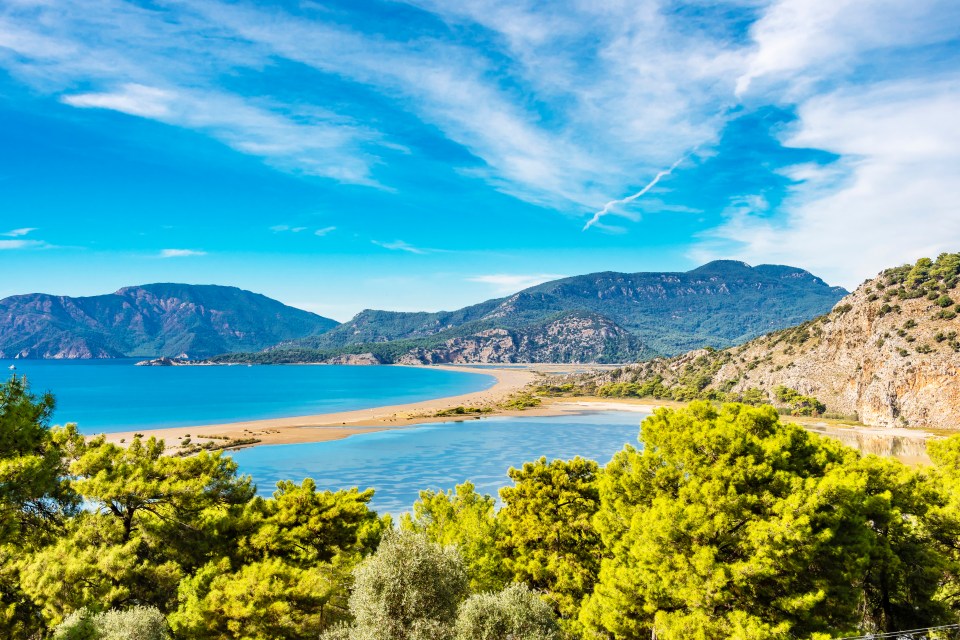
WADING out of the sea, my daughter Riley is breathless with excitement as she tells me a huge turtle has just floated under her as she was swimming.
Bearing in mind she is 13 and rarely excited by anything these days, it’s clearly an impressive sight.
That is just one of many things that will wow us on our week in Sarigerme, on Turkey’s Dalaman coast.
It’s been almost three decades since I last visited Turkey – on a girls’ holiday to tourist hot spot Marmaris.
This time, I’ve picked the four-star Tui Blue Tropical, just 20 minutes’ drive from Dalaman airport, for a getaway with my husband Alistair and our twins Riley and Harris.
Here, a marble-clad lobby leads out to the pool area, where you’ll find low-rise buildings housing 500 rooms.
Our junior suite is close to the pool, but not too close to be noisy.
There’s one bedroom with a king-size bed, while two sofas in the living area turn into beds come night.
A spacious balcony overlooks tranquil gardens, while the bathroom comes with a power shower, bathrobes and slippers.
All you can eat
We soon establish that people are up early to get the best sunbeds, but manage to nab a few close to the bustling restaurant by the main pool (there are seven to choose from) and spend the afternoon riding the two water slides and eating vanilla and strawberry ice cream.
At breakfast, we enjoy everything from freshly cooked waffles and pancakes to sausages, bacon and eggs in the main restaurant.
For lunch, we opt for the pool eatery, feasting on a delicious assortment of fresh salads and fish straight from the grill, and it feels super-healthy (other than the glass of white to wash it down).
Anyone with children knows the joy of an all-inclusive – especially with teens who never seem to stop eating.
My two tuck into pizza, pasta, grilled chicken and salad, accompanied by smoothies.
In the evening, it’s back to the buffet, with its variety of themed nights, including Chinese and Italian.
But the Turkish kebabs, houmous, meatballs and delicious breads are all a hit, and the huge selection of Insta-worthy desserts on offer are also a winner.
After dinner, the resort is always buzzing with entertainment – from live music to acrobats and discos, as well as several Turkish-bazaar-style shops to explore.
The kids pick up cheap football shirts, while a Louis Vuitton Neverfull dupe costs me £24, as opposed to the designer handbag price of £1.4k, and it’s pretty hard to tell the difference!
Our favourite place by far, though, is the pristine stretch of sandy beach, with its clear-blue waters.
The nearby beach bar plays cool tunes and serves up a cocktail of the day at 4.30pm to sip from our loungers.
Some afternoons, I even manage a much-needed exercise class, such as a HIIT and yoga, while morning football goes down a treat with Harris.
There is also daily beach volleyball with the Tui reps, which proves very competitive!
Water activities include parasailing and banana boats – we brave the inflatable and it’s an experience to remember.
A river runs through it
The hotel’s beachfront is not the only place to spot turtles.
Midweek, we take an excursion down the River Dalyan on an eco boat, which costs £49 for adults, £28 for children.
It’s a brilliant way to see a completely different side of Turkey, taking in luscious vegetation, beautiful homes and luxe hotels along the riverbank.
Our first destination is the Dalyan Mud Baths, which claim to have anti-ageing properties and is said to have been visited by Cleopatra to maintain her beauty.
The smell of sulphur hits as soon as we pull up, and it takes some persuasion to get Riley and Harris into the mud pool, where we all cover ourselves in what seems very similar to potent green slime.
After we’ve let the mud dry in the sun, it’s time for a hose down, before a dip in a warm sulphur pool, followed by a cleansing shower.
It’s all great fun, though my bikini has never been the same again and I’m not quite convinced I look any younger!
Back on the boat, we spot a few ancient rock tombs carved into the cliffs by the Lycian civilisation, before stopping at Iztuzu Beach, nicknamed Turtle Beach after the endangered loggerhead turtles that nest here.
We feed several that are swimming around the boats with crab claws, before a spot of sunbathing and a refreshing swim.
Later that evening, when we’ve made sure we are totally mud-free, we walk the 2km into the village of Sarigerme and wander the winding streets.
In quaint little eatery Dorya, we feast on fresh calamari, £3, fillet of sea bass, £7.60, and a huge salad, £1.80, before popping into a few of the village shops to admire the colourful crockery.
I only wish I could fit some in my suitcase!
Before we know it, it’s time to fly home and say goodbye to one of the loveliest places we’ve ever been.
- Seven nights for a family of four at Tui Blue Tropical cost from £879 per person (Tui.co.uk).
Travel
I visited Ireland’s ‘ancient capital’ an hour from London – with seafront pubs and Viking experiences

I FEEL about six years old, hands and knees covered in thick mud, as I emerge from a tunnel only big enough to crawl through, first used by Christian settlers more than 1,200 years ago to escape Viking raids.
I’m at Knowth, the world’s largest passage tomb, just 20 minutes north of Dublin in Ireland’s Boyne Valley.
The ancient sites of Newgrange, Knowth and Howth were built 5,000 years ago for the burial of around half a dozen “god-like” people.
Our tour guide explains that the monuments, older than the Egyptian pyramids and Stonehenge, were built like giant lasagnes, with huge stones piled one on top of the other.
Known as the birthplace of Ireland’s ancient east, the Boyne Valley is ideal for exploring Ireland’s history and tradition — without travelling too far from Dublin Airport.
After my ancient sites tour, I headed to Causey Farm in Fordstown, which offers groups of tourists the chance to “be Irish for the day” for as little as £12pp.
Arriving to the homely smell of a wood-burning stove, I’m shown how to make Irish soda bread, before moving on to a lesson on the traditional Irish drum, known as a bodhrán (pronounced bow-ran).
Next comes a tour of the animals — I get to meet a fluffy, ten-week-old border collie that melts my heart, as well as a slightly less charming (actually terrifying) pig, some alpacas and rabbits.
The visit finishes with farmer Matt Murtagh demonstrating how his sheepdog Crick effortlessly corrals a herd of sheep wherever he demands, at one point playfully running the herd inches from me.
The Boyne Valley is also ripe with history — it’s the setting for the 1995 Mel Gibson film Braveheart and where the Battle of the Boyne was fought between deposed King James II and the newly crowned King William III in 1690.
At Trim Castle, a guided tour starts at just £2.50 and it is free to explore the grounds.
We get to climb right to the roof, stopping to see key rooms along the way, with walls covered in 18th century graffiti — a John Gibney marked his name in 1760.
We’re then shown the chapel where the priests’ ornate wash basin can still be seen, and there’s even a medieval toilet (read hole in the floor) — lucky us!
If history isn’t your thing, Park Beo, an adventure base in Wilkinstown, offers a “gateway” to the Lakelands Greenway — a cycle path stretching 18 miles along an old railway line from Navan to Kingscourt — as well as shops selling everything from cheese toasties to cherry bakewells produced by a local.
With a huge car park, it acts as space to service visitors who want to head out for a walk with a fresh takeaway coffee.
There’s also a bi- cycle hire office with bikes and e-bikes to rent from £8.30 an hour.
If you prefer a seafront amble, this region boasts miles of impressive coastline.
The village of Annagassan, a former Viking settlement, has breathtaking coastal views, with a dramatic tide perfect for razor clams.
Seafood banquet
You can sample them fresh at local joint, The Glyde Inn, a charming 18th-century pub with roaring fires and an award-winning restaurant with panoramic sea views.
For something extra special, the family-run Irish National Pub of the Year award winner offers a dinner-and-show style “Viking VR Experience” for £50pp.
Each ticket gets you a pint of Irish Pale Ale, brewed down the road, as well as a ten-minute VR show of what the area would have looked like at the time of the Vikings in 841 AD, when Bjorn the Great was in charge of the settlement there.
Then comes the main event, a seafood banquet of whatever has been caught that day.
I was served Carlingford oysters and crab and butter-coated razor clams to start, followed by a main course of black sole with wilted sea beech foraged just outside the restaurant’s patio doors, served alongside a creamy sea radish mash.
Try to book for late afternoon, as from 5.30pm to 6.30pm each day a live band plays traditional music.
It’s the perfect ending to any Irish adventure.
GO: BOYNE VALLEY
GETTING THERE: Aer Lingus offers nine daily flights from Heathrow to Dublin at £59.99 each way.
See aerlingus.com.
STAYING THERE: Double rooms at the 4H Trim Castle Hotel in Meath from £100 per night.
See trimcastle.com.
The Headfort Arms Hotel in Kells has rooms from £82 per night.
See headfortarms.ie.
MORE INFO: See discoverboynevalley.ie.
Travel
Eurowings adds access to four new lounges
BIZclass passengers and HON Circle and Senator status members will now have access to lounges in Palma de Mallorca, Dubai, Cairo and Jeddah
Continue reading Eurowings adds access to four new lounges at Business Traveller.
Business
Sunday Number 66: Numbers Puzzle
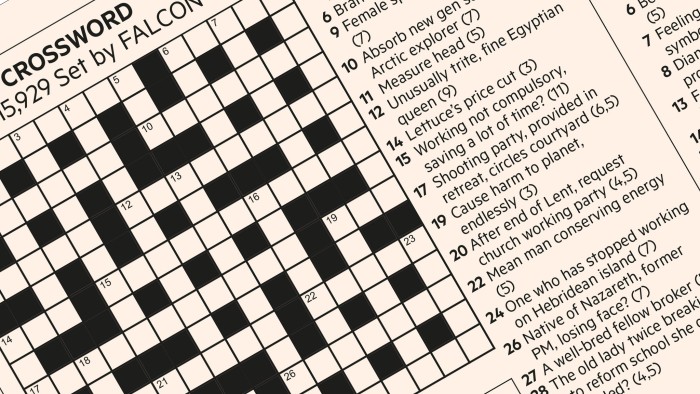
Sunday Number 66: Numbers Puzzle
-

 Science & Environment2 months ago
Science & Environment2 months agoHow to unsnarl a tangle of threads, according to physics
-

 Technology1 month ago
Technology1 month agoIs sharing your smartphone PIN part of a healthy relationship?
-

 Science & Environment2 months ago
Science & Environment2 months agoHyperelastic gel is one of the stretchiest materials known to science
-

 Science & Environment2 months ago
Science & Environment2 months ago‘Running of the bulls’ festival crowds move like charged particles
-

 Technology2 months ago
Technology2 months agoWould-be reality TV contestants ‘not looking real’
-

 Science & Environment2 months ago
Science & Environment2 months agoX-rays reveal half-billion-year-old insect ancestor
-

 Science & Environment2 months ago
Science & Environment2 months agoPhysicists have worked out how to melt any material
-

 Sport1 month ago
Sport1 month agoAaron Ramsdale: Southampton goalkeeper left Arsenal for more game time
-

 MMA1 month ago
MMA1 month ago‘Dirt decision’: Conor McGregor, pros react to Jose Aldo’s razor-thin loss at UFC 307
-

 Money1 month ago
Money1 month agoWetherspoons issues update on closures – see the full list of five still at risk and 26 gone for good
-

 News1 month ago
News1 month ago‘Blacks for Trump’ and Pennsylvania progressives play for undecided voters
-

 Science & Environment2 months ago
Science & Environment2 months agoMaxwell’s demon charges quantum batteries inside of a quantum computer
-

 Science & Environment2 months ago
Science & Environment2 months agoSunlight-trapping device can generate temperatures over 1000°C
-

 Football1 month ago
Football1 month agoRangers & Celtic ready for first SWPL derby showdown
-

 News1 month ago
News1 month agoWoman who died of cancer ‘was misdiagnosed on phone call with GP’
-

 Technology1 month ago
Technology1 month agoUkraine is using AI to manage the removal of Russian landmines
-
Business1 month ago
how UniCredit built its Commerzbank stake
-

 Science & Environment2 months ago
Science & Environment2 months agoLaser helps turn an electron into a coil of mass and charge
-

 Science & Environment2 months ago
Science & Environment2 months agoA new kind of experiment at the Large Hadron Collider could unravel quantum reality
-

 Science & Environment2 months ago
Science & Environment2 months agoLiquid crystals could improve quantum communication devices
-

 Science & Environment2 months ago
Science & Environment2 months agoWhy this is a golden age for life to thrive across the universe
-

 Technology1 month ago
Technology1 month agoGmail gets redesigned summary cards with more data & features
-

 Sport1 month ago
Sport1 month ago2024 ICC Women’s T20 World Cup: Pakistan beat Sri Lanka
-

 Technology1 month ago
Technology1 month agoSamsung Passkeys will work with Samsung’s smart home devices
-

 Entertainment1 month ago
Entertainment1 month agoBruce Springsteen endorses Harris, calls Trump “most dangerous candidate for president in my lifetime”
-

 Sport1 month ago
Sport1 month agoBoxing: World champion Nick Ball set for Liverpool homecoming against Ronny Rios
-

 Technology1 month ago
Technology1 month agoRussia is building ground-based kamikaze robots out of old hoverboards
-

 Science & Environment2 months ago
Science & Environment2 months agoQuantum ‘supersolid’ matter stirred using magnets
-

 Technology1 month ago
Technology1 month agoEpic Games CEO Tim Sweeney renews blast at ‘gatekeeper’ platform owners
-

 News1 month ago
News1 month agoMassive blasts in Beirut after renewed Israeli air strikes
-

 News1 month ago
News1 month agoNavigating the News Void: Opportunities for Revitalization
-
Business1 month ago
Top shale boss says US ‘unusually vulnerable’ to Middle East oil shock
-

 MMA1 month ago
MMA1 month agoPereira vs. Rountree prediction: Champ chases legend status
-

 Science & Environment2 months ago
Science & Environment2 months agoQuantum forces used to automatically assemble tiny device
-

 MMA1 month ago
MMA1 month agoDana White’s Contender Series 74 recap, analysis, winner grades
-

 Technology1 month ago
Technology1 month agoSingleStore’s BryteFlow acquisition targets data integration
-

 Technology1 month ago
Technology1 month agoMicrosoft just dropped Drasi, and it could change how we handle big data
-

 MMA1 month ago
MMA1 month ago‘Uncrowned queen’ Kayla Harrison tastes blood, wants UFC title run
-

 Technology1 month ago
Technology1 month agoMicrophone made of atom-thick graphene could be used in smartphones
-

 Sport1 month ago
Sport1 month agoWXV1: Canada 21-8 Ireland – Hosts make it two wins from two
-

 Business1 month ago
Business1 month agoWater companies ‘failing to address customers’ concerns’
-

 Technology1 month ago
Technology1 month agoCheck, Remote, and Gusto discuss the future of work at Disrupt 2024
-

 News1 month ago
News1 month agoRwanda restricts funeral sizes following outbreak
-

 News1 month ago
News1 month agoCornell is about to deport a student over Palestine activism
-

 Money1 month ago
Money1 month agoTiny clue on edge of £1 coin that makes it worth 2500 times its face value – do you have one lurking in your change?
-

 Science & Environment2 months ago
Science & Environment2 months agoITER: Is the world’s biggest fusion experiment dead after new delay to 2035?
-

 News2 months ago
News2 months ago▶️ Hamas in the West Bank: Rising Support and Deadly Attacks You Might Not Know About
-

 Technology2 months ago
Technology2 months agoMeta has a major opportunity to win the AI hardware race
-

 Technology2 months ago
Technology2 months agoWhy Machines Learn: A clever primer makes sense of what makes AI possible
-

 TV1 month ago
TV1 month agoসারাদেশে দিনব্যাপী বৃষ্টির পূর্বাভাস; সমুদ্রবন্দরে ৩ নম্বর সংকেত | Weather Today | Jamuna TV
-

 MMA1 month ago
MMA1 month agoPennington vs. Peña pick: Can ex-champ recapture title?
-

 Technology1 month ago
Technology1 month agoLG C4 OLED smart TVs hit record-low prices ahead of Prime Day
-

 Sport1 month ago
Sport1 month agoAmerica’s Cup: Great Britain qualify for first time since 1964
-

 MMA1 month ago
MMA1 month agoKayla Harrison gets involved in nasty war of words with Julianna Pena and Ketlen Vieira
-

 Business1 month ago
Business1 month agoWhen to tip and when not to tip
-

 Sport1 month ago
Sport1 month agoShanghai Masters: Jannik Sinner and Carlos Alcaraz win openers
-
Travel1 month ago
World of Hyatt welcomes iconic lifestyle brand in latest partnership
-

 Football1 month ago
Football1 month ago'Rangers outclassed and outplayed as Hearts stop rot'
-

 News1 month ago
News1 month agoHull KR 10-8 Warrington Wolves – Robins reach first Super League Grand Final
-

 Science & Environment2 months ago
Science & Environment2 months agoA slight curve helps rocks make the biggest splash
-

 Science & Environment2 months ago
Science & Environment2 months agoNuclear fusion experiment overcomes two key operating hurdles
-

 Technology1 month ago
Technology1 month agoUniversity examiners fail to spot ChatGPT answers in real-world test
-

 MMA1 month ago
MMA1 month agoHow to watch Salt Lake City title fights, lineup, odds, more
-
Business1 month ago
Italy seeks to raise more windfall taxes from companies
-

 News1 month ago
News1 month agoHarry vs Sun publisher: ‘Two obdurate but well-resourced armies’
-

 Sport1 month ago
Sport1 month agoPremiership Women’s Rugby: Exeter Chiefs boss unhappy with WXV clash
-

 News1 month ago
News1 month ago▶ Hamas Spent $1B on Tunnels Instead of Investing in a Future for Gaza’s People
-

 Sport1 month ago
Sport1 month agoURC: Munster 23-0 Ospreys – hosts enjoy second win of season
-

 TV1 month ago
TV1 month agoTV Patrol Express September 26, 2024
-

 Sport1 month ago
Sport1 month agoChina Open: Carlos Alcaraz recovers to beat Jannik Sinner in dramatic final
-

 Football1 month ago
Football1 month agoWhy does Prince William support Aston Villa?
-

 Science & Environment2 months ago
Science & Environment2 months agoNerve fibres in the brain could generate quantum entanglement
-

 Womens Workouts2 months ago
Womens Workouts2 months ago3 Day Full Body Women’s Dumbbell Only Workout
-

 Technology1 month ago
Technology1 month agoMusk faces SEC questions over X takeover
-

 Sport1 month ago
Sport1 month agoSturm Graz: How Austrians ended Red Bull’s title dominance
-

 Sport1 month ago
Sport1 month agoCoco Gauff stages superb comeback to reach China Open final
-

 Sport1 month ago
Sport1 month agoFans say ‘Moyes is joking, right?’ after his bizarre interview about under-fire Man Utd manager Erik ten Hag goes viral
-
Politics1 month ago
‘The night of the living dead’: denial-fuelled Tory conference ends without direction | Conservative conference
-

 Technology1 month ago
Technology1 month agoNintendo’s latest hardware is not the Switch 2
-

 Science & Environment2 months ago
Science & Environment2 months agoHow to wrap your mind around the real multiverse
-
Business1 month ago
Bank of England warns of ‘future stress’ from hedge fund bets against US Treasuries
-

 Technology1 month ago
Technology1 month agoJ.B. Hunt and UP.Labs launch venture lab to build logistics startups
-

 Technology1 month ago
Technology1 month agoQuoroom acquires Investory to scale up its capital-raising platform for startups
-

 Football1 month ago
Football1 month agoFifa to investigate alleged rule breaches by Israel Football Association
-

 MMA1 month ago
MMA1 month ago‘I was fighting on automatic pilot’ at UFC 306
-

 Sport1 month ago
Sport1 month agoHow India became a Test cricket powerhouse
-

 Sport1 month ago
Sport1 month agoNew Zealand v England in WXV: Black Ferns not ‘invincible’ before game
-

 News1 month ago
News1 month agoGerman Car Company Declares Bankruptcy – 200 Employees Lose Their Jobs
-
Business1 month ago
The search for Japan’s ‘lost’ art
-

 Sport1 month ago
Sport1 month agoWales fall to second loss of WXV against Italy
-
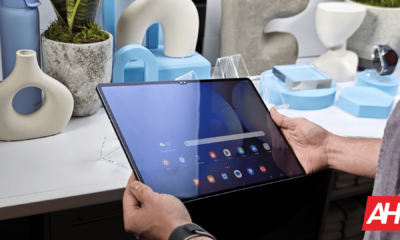
 Technology1 month ago
Technology1 month agoSamsung Galaxy Tab S10 won’t get monthly security updates
-

 Science & Environment2 months ago
Science & Environment2 months agoTime travel sci-fi novel is a rip-roaringly good thought experiment
-

 News2 months ago
News2 months ago▶️ Media Bias: How They Spin Attack on Hezbollah and Ignore the Reality
-

 Science & Environment2 months ago
Science & Environment2 months agoA tale of two mysteries: ghostly neutrinos and the proton decay puzzle
-
Business1 month ago
DoJ accuses Donald Trump of ‘private criminal effort’ to overturn 2020 election
-

 Technology1 month ago
Technology1 month agoAmazon’s Ring just doubled the price of its alarm monitoring service for grandfathered customers
-
Business1 month ago
Sterling slides after Bailey says BoE could be ‘a bit more aggressive’ on rates
-
Business1 month ago
‘Let’s be more normal’ — and rival Tory strategies
-

 Technology1 month ago
Technology1 month agoThe best shows on Max (formerly HBO Max) right now
-

 News1 month ago
News1 month agoTrump returns to Pennsylvania for rally at site of assassination attempt

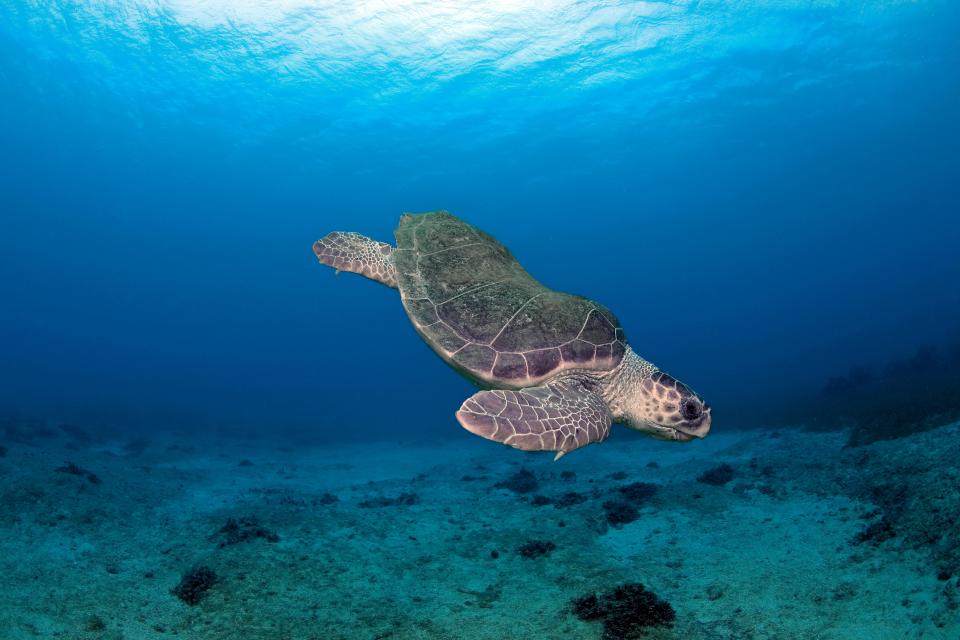

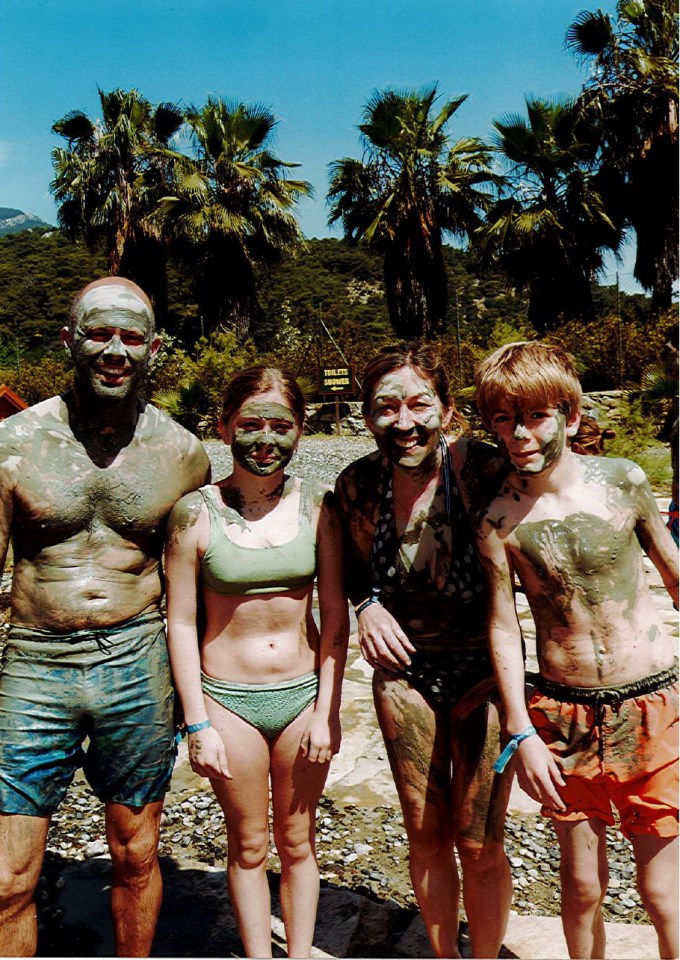
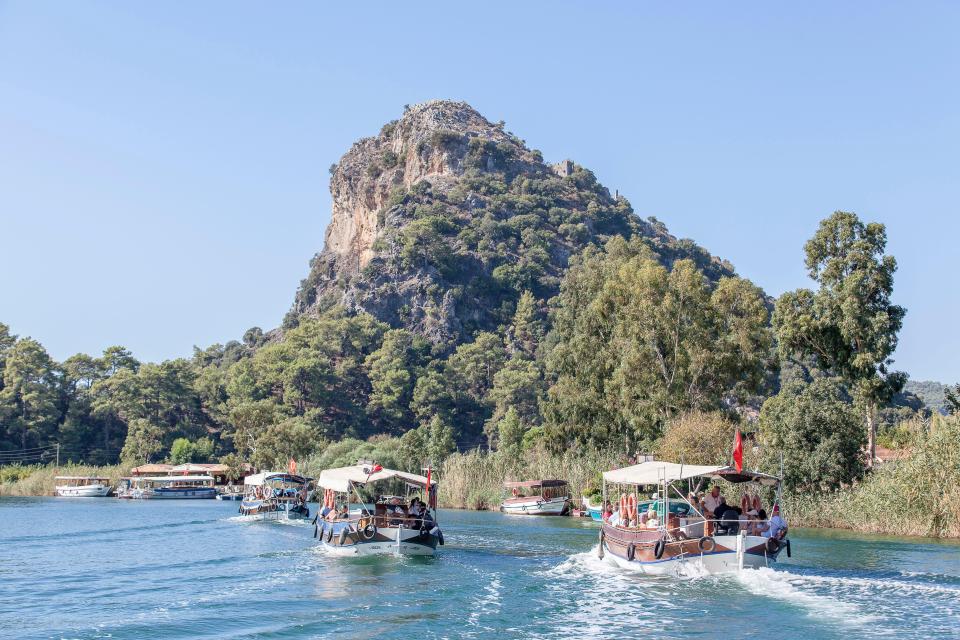

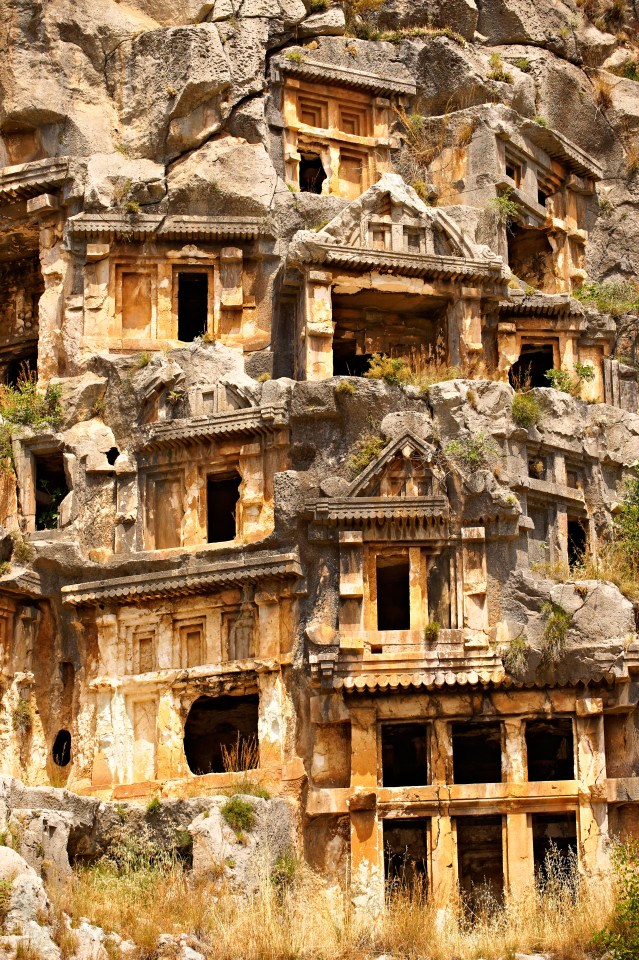

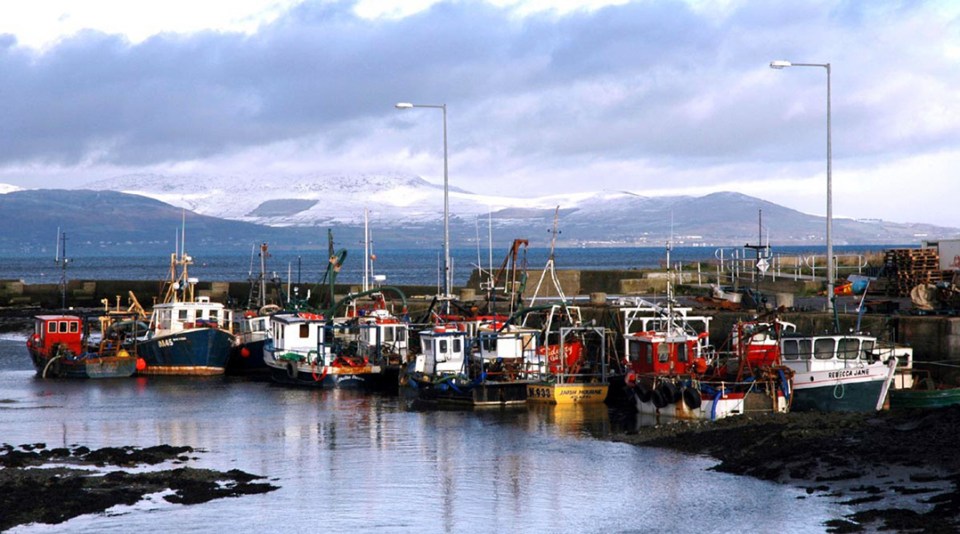


You must be logged in to post a comment Login